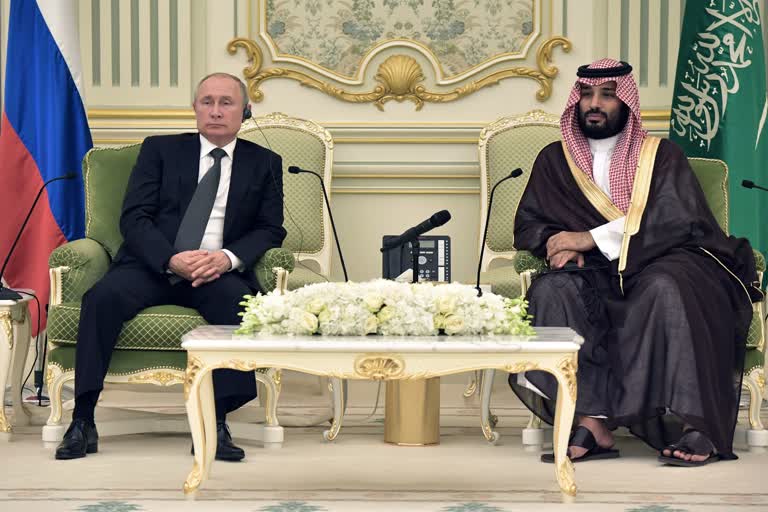New Delhi:The bloodbath in the oil market has continued into the new week with crude oil prices slumping to around 30 per cent on Monday to just about $30 a barrel after Saudi Arabia shocked the market by launching a price war against one time ally Russia.
Late last week, talks between oil cartel Organization of Petroleum Exporting Countries (OEPC) and Russia collapsed as the two sides failed to agree on an output cut deal. This pushed Saudi Arabia, the world's largest oil producer, to cut its crude prices and announce increase production leading to a mayhem in an already over supplied oil market.
Crude is trading down 22 per cent to $32 a barrel. Brent crude, the global benchmark, has also plunged 22 per cent to $35 a barrel. Both oil contracts are on track for their worst day since 1991 Gulf War.
US oil prices crashed as much as 27 per cent to a four-year low of $30 a barrel.
The fear in the market now is that oil prices may crash further as Saudi Arabia is taking aggressive stance and is expected to flood the market with crude in a bid to recapture market share. Analysts have said that Saudi Arabia had slashed its April official selling prices by $6 to $8 a barrel in a bid to retake market share and heap pressure on Russia.
Read more:Steepest fall in crude oil price since 1991 Gulf War
The global developments on oil bore well for India that imports 83 per cent of its domestic oil requirements. Analysts said that the country could save over $30-40 billion in its oil import bill if the current prices hold on for longer during 2020. This fiscals oil imports bill is also expected to fall from the gains on prices in the last two months of the financial year.
In a tweet on Sunday Kotak Mahindra Bank managing director and CEO Uday Kotak said: "Amidst turbulence and the virus, some good news - oil at $45/barrel. Recent $20 drop saves India $30 billion per annum. Also global interest rates have collapsed making money cheap. Let's leverage these for policy to boost growth."
India oil import bill is expected to fall by a sharper 10 per cent in FY20 as the increasing spread of Coronavirus and now the fallout of talks between OPEC and Russia has depressed the crude oil prices to about $30 a barrel now against a high of over $70 a barrel in September and again in January this year.
For FY21, the import bill could slip to half of current levels at $64 billion witnessed in FY16 when crude had fallen to $26 a barrel for some time.
According to oil ministry's Petroleum Planning and Analysis Cell (PPAC), country's oil imports is projected to fall to 225 million tonnes (mt) in FY20 against 227 mt in FY19 while the import bill would reduce 6 per cent to $105 billion from $112 billion worth of imports in previous fiscal.
However, this calculation is based on average crude price of $64 a barrel for April-December of current fiscal while the January-March import has been worked on the basis of crude price of $66 a barrel. It is worth noting that crude oil prices slipped to below $60 and now around $30 a barrel from highs witnessed in first week of January. Analysts say that this would bring big savings on oil imports that generally surge in the later part of the financial year.
If the price ramains around $30 for most parts of 2020, import bill could reach its all time low in many many years. The potential is it could fall to $64 billion in FY 21, the same as FY16 when crude prices slipped below $26 a barrel.
A one dollar fall in crude oil price results in reducing country's import bill by almost Rs 2,900 crore while a rupee fall in value of currency against dollar results in increased spending by upto rs 2,700 crore.
